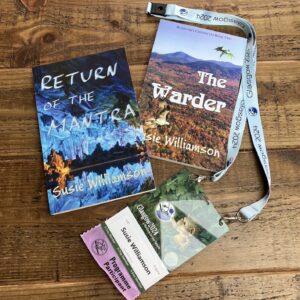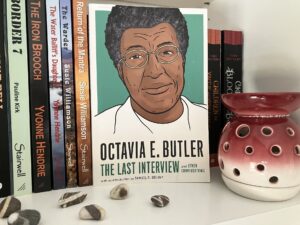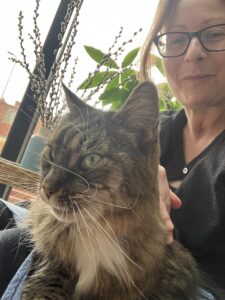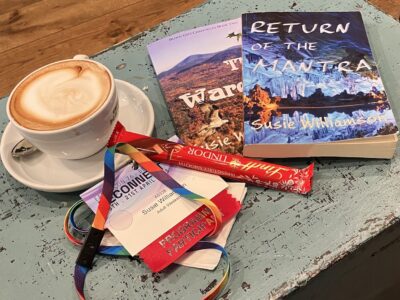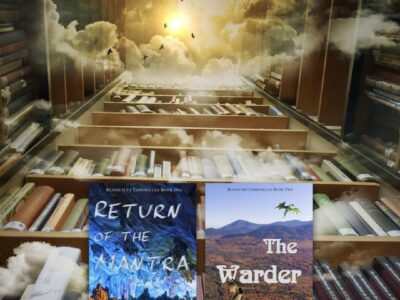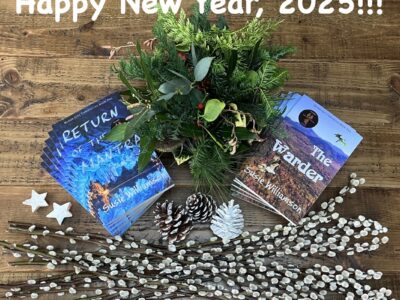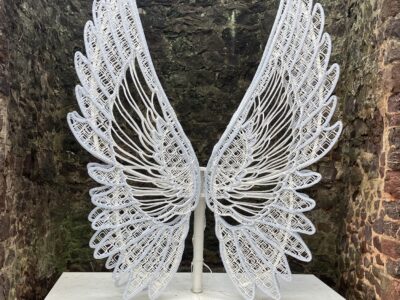
At last, time to sit back and reflect on a very special trip in August, all the way to Glasgow 2024, A Worldcon for Our Futures. This was the 82nd World Science Fiction Convention brought to Scotland, and what an inspiring few days it was.

Worlds within worlds took shape in imaginative architecture nestled alongside the river Clyde, a wonderful place to take a break and reflect, with time enough for a stroll downstream and castaway on the Tall Ship, Glenlee, delving into the truly extraordinary stories of life on board sea voyages not for the faint-hearted. Research comes in many forms for writers, and immersed in the ship’s atmosphere, I let my imagination wander to an incredible journey one character of mine is forced to make. But my work-in-progress novel is another story.













Back to the convention and it was great to catch up with familiar faces, meet new people, and take part in panel discussions examining the length and breadth of these fascinating genres.

It was a pleasure exploring the connection between being an artist and a storyteller, discussing the process of being a visual writer and storytelling artist, and how the visual, and narrative, blend into a similar space, all through interwoven creative mediums. Surrounded by so much colour, there was a lot to inspire.


More on visual writing another time, but one very special guest of honour, a current favourite author of mine, Nnedi Okorafor, is a writer whose work I find particularly visual – colourful, striking and memorable. It was a wonderful opportunity to see her interviewed in person, to put a face to words I have poured over. A pioneer in many ways, her personal story is inspiring, as is all she continues to achieve through her work, a woman who stayed true to herself and her convictions, who defied genre (or at least white-centric, first world genre norms), and in doing so, we are treated with Africanfuturism and Africanjujuism. I find her work to be unapologetic, strong, colourful and pushing boundaries in exploring a vibrant world.

Another panel I had the pleasure of joining explored diversity of a different kind, from queer triumphs to utopias and everything in-between. It’s a wonderfully explorative theme to consider, stories where marginalised people are being framed as the hero, getting to the heart of identity through looking closely at a character’s intersections, glancing back at history to support understanding, as well as imagining anew. Considering the interplay between stories and the real world, how one influences the other and vice versa, we need those new imaginings, and as a writer I work alongside my characters to see their hopes realised. Themes of identity, self-determination and empowerment feature in my work, since I find that conceptualising hope stems from steps taken towards our own authentic standing in the world. From awareness of our identity, we invest in contributing to others being able to flourish, including the natural world since our futures are entwined; we are a part of nature. It’s a familiar journey for me, one that my characters walk, as they explore collaboration, connectivity and shared values.
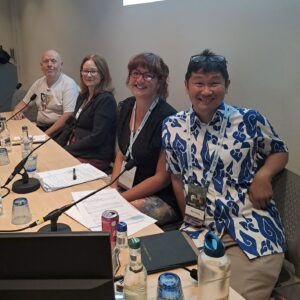
The dealers room was a joy. It was great to see piles of the British Science Fiction Association’s Magazine, Focus, where a recent article of mine is published, entitled Breaking Binaries of Good versus Bad in SFF.
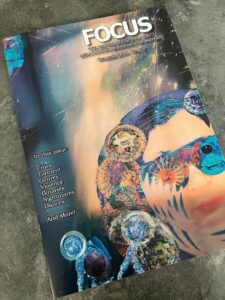
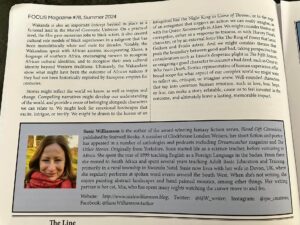
And of course it was a wonderful chance to catch up with my publishers, the lovely folks of Stairwell Books, as well as pick up a few titles to come home with for my ever-expanding to-read pile.


And so to end with a question: what are you reading?


